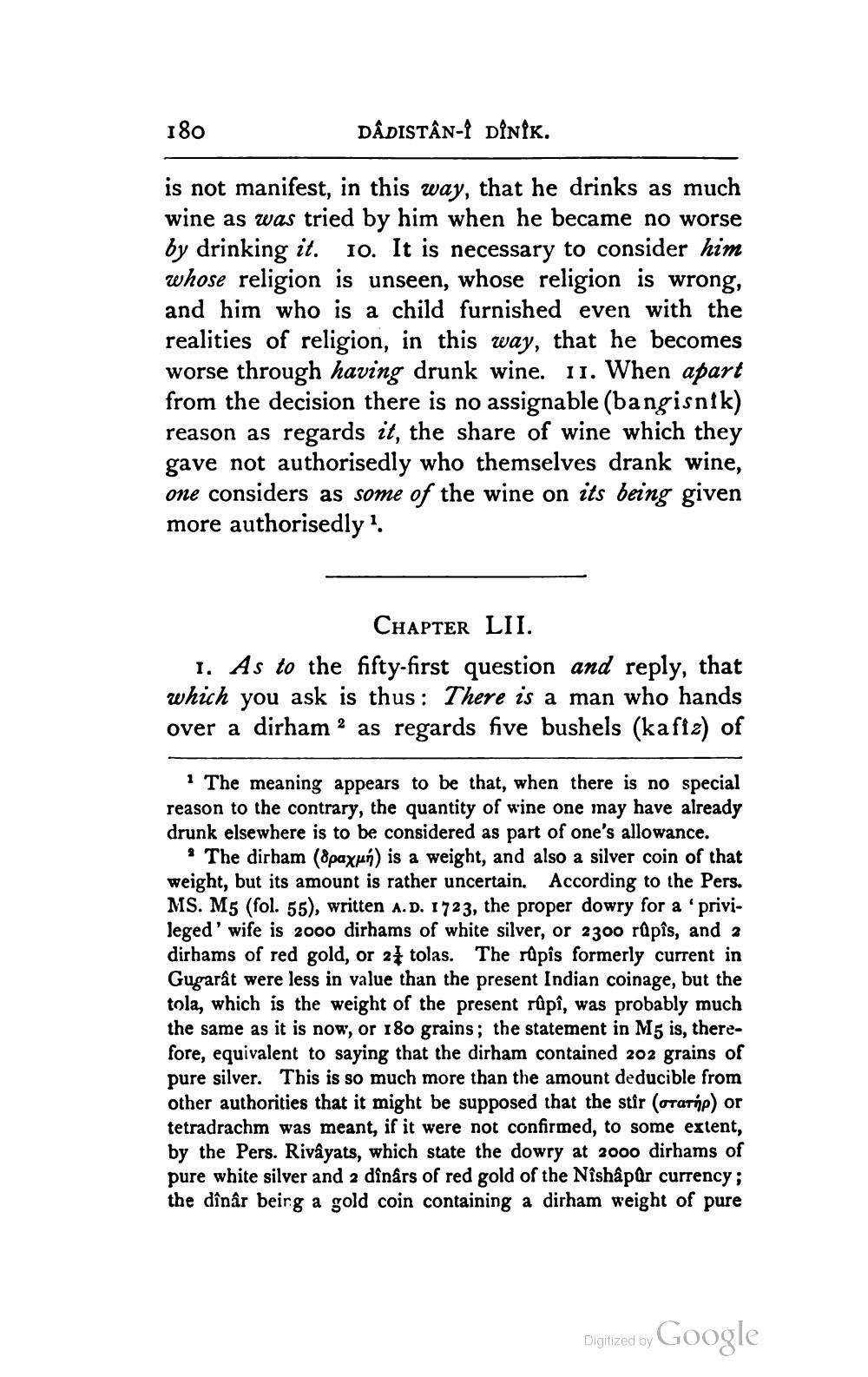________________
180
DÂDISTÂN-I Dinik.
is not manifest, in this way, that he drinks as much wine as was tried by him when he became no worse by drinking it. 10. It is necessary to consider him whose religion is unseen, whose religion is wrong, and him who is a child furnished even with the realities of religion, in this way, that he becomes worse through having drunk wine. 11. When apart from the decision there is no assignable (bangisnik) reason as regards it, the share of wine which they gave not authorisedly who themselves drank wine, one considers as some of the wine on its being given more authorisedly?.
CHAPTER LII. 1. As to the fifty-first question and reply, that which you ask is thus: There is a man who hands over a dirham as regards five bushels (kafiz) of
1 The meaning appears to be that, when there is no special reason to the contrary, the quantity of wine one may have already drunk elsewhere is to be considered as part of one's allowance.
* The dirham (payun) is a weight, and also a silver coin of that weight, but its amount is rather uncertain. According to the Pers. MS. M5 (fol. 55), written A.D. 1723, the proper dowry for a 'privileged' wife is 2000 dirhams of white silver, or 2300 rûpîs, and 2 dirhams of red gold, or 2 tolas. The růpis formerly current in Gugarât were less in value than the present Indian coinage, but the tola, which is the weight of the present rûpî, was probably much the same as it is now, or 180 grains; the statement in M5 is, therefore, equivalent to saying that the dirham contained 202 grains of pure silver. This is so much more than the amount deducible from other authorities that it might be supposed that the stir (orarhe) or tetradrachm was meant, if it were not confirmed, to some extent, by the Pers. Rivayats, which state the dowry at 2000 dirhams of pure white silver and a dinars of red gold of the Nîshapûr currency; the dînâr being a gold coin containing a dirham weight of pure
Digitized by Google




